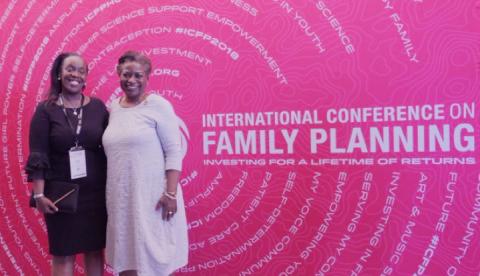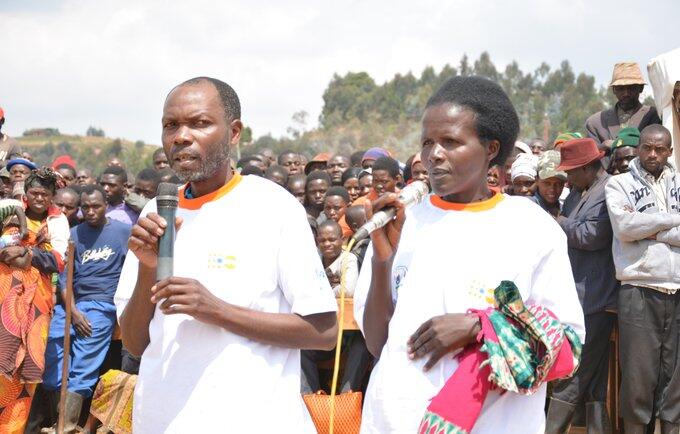Voluntary Family planning is not only a matter of human rights for both women and men; it is central to women’s empowerment, reducing poverty and achieving sustainable development including helping countries to reap a demographic dividend. When a woman, a couple can plan when and how many children to have, it allows her/them to achieve better education, seek and keep better jobs, and contribute more to the family, the nation and to global prosperity.

Rwanda celebrates successes, recognizing that current achievements should become the basis for further steps to reaching the last mile. Of late, however, Rwanda contraceptive prevalence rate has stagnated, showing a small increase of 2.5 percent between 2010 (45%) to 2015 (47.5%), while (unmet need for family planning stands at 19%. In an effort to contribute to the transformative result of reaching zero unmet needs for family planning, UNFPA in partnership with the Government of Rwanda through the Ministry of Health engaged in accelerating community outreach campaigns in remote rural areas of Karongi District, which has one of the lowest contraceptive prevalence rates standing at 37.7%. By reducing the high unmet need for family planning, the country hopes to reduce the high rates of unintended pregnancies and hence reduce the risk of unsafe abortions and related health consequences The primary purpose of the campaign was to ensure increased access to family planning information and services, making sure FP commodities reach the last mile and hence, achieve zero unmet need for FP. During the campaign in Karongi District, 3,495 people received family planning methods; 49.6 per cent of clients chose long-term contraception and two men opted for permanent method - vasectomy.
Nsengimana Jean de Dieu and his wife Mukabutera Seraphine residents of Rwankuba Sector Karongi District Nsengimana shared a testimony about his decision to undergo vasectomy as his choice of family planning method to help his wife who had to discontinue family planning methods due to side effects. Since the couple had achieved the desired family size of three children, he accepted to go for vasectomy and shared his option with a health provider who assured him of the safety of the method. Voluntary family planning enabled Nsengimana and his wife to participate in income generating activities, taking care of their family’s welfare including investing in their children’s education. “My children have never gone hungry or failed to attend school or failed to have appropriate clothing. With the little money we earn, I have managed to give my family a decent living,” he narrates. Nsengimana, is now a family planning activist who calls onto other parents to embrace family planning because its benefits stretch right back to society in general.
This year (2018), World Population Day was commemorated under the theme: Family is a Human Right – a call to countries to make family planning a universal choice so that this right can be truly realized. To mark the day, Mark Bryan Schreiner, the UNFPA Rwanda Representative, pointed out that Rwanda has identified family planning as a best buy to achieve demographic dividend and sustainable development goals. Family planning is The commemoration also coincided with the publication of its first ever integrated national Reproductive, Maternal, Newborn, Child and Adolescent Health (RMNCAH) policy Achieving Sustainable Development Goals by 2030 and AU Agenda 2063 will depend significantly on how well the sexual and reproductive health and rights of women and young people are fulfilled. Catering for their unmet need for family planning is among the most cost-effective investments overall.
By investing in family planning, UNFPA is investing in the health and rights of women and couples worldwide by promoting related human rights standards of informed consent, non-discrimination, availability, accessibility of services. Investments in family planning yield multiple gains that propel a country to achieve high standards of living and prosperity


